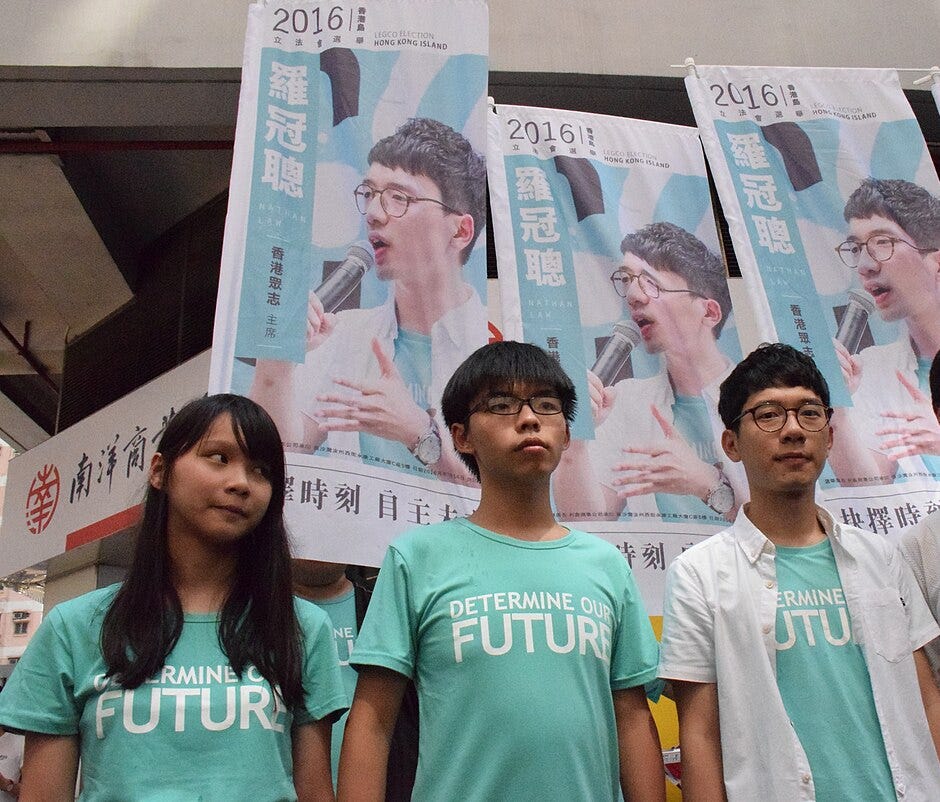The Silencing of Dissent: Hong Kong’s Vanishing Pro-Democracy Movement
The disbandment of Hong Kong’s Democratic Party in April 2025 marks a pivotal shift in the city’s political landscape, signaling the decline of its once-vibrant pro-democracy movement.
In April 2025, Hong Kong’s Democratic Party, the city’s oldest and largest pro-democracy political group, announced its disbandment following mounting pressure from Beijing. Once a key opposition force advocating for universal suffrage and civil rights, the party had been systematically weakened by electoral restrictions, arrests of members, and surveillance. Facing an increasingly hostile political environment, 90 percent of its remaining members voted to dissolve the party, marking the end of an era for Hong Kong’s democratic movement. The decision came after warnings from Chinese officials, who reportedly told party leaders that they must disband or face serious consequences, including possible arrests. The dissolution of the Democratic Party underscores the shrinking space for political dissent in Hong Kong as authorities continue to tighten control over opposition voices.
Founded in 1994, the Democratic Party played a central role in Hong Kong’s push for democratic reforms, advocating for greater autonomy and civil liberties under the "One Country, Two Systems" framework. However, the political climate began to change dramatically following the 2019 pro-democracy protests and the subsequent enactment of the National Security Law in 2020.
The sweeping powers granted by this law allowed authorities to suppress dissent, leading to the arrests of activists, the disqualification of pro-democracy candidates, and heightened censorship.
The Democratic Party’s decision to disband reflects the broader decline of political pluralism in Hong Kong. Legal mechanisms have been systematically used to dismantle opposition—a strategy scholars describe as “stealth authoritarianism,” where democratic institutions are undermined under the guise of legality.
While the international community has voiced concerns over these developments, tangible actions have been minimal. The dissolution of the Democratic Party marks not just the end of an era for Hong Kong’s pro-democracy movement but also serves as a stark warning of how democratic institutions can be eroded through legal means.
As Hong Kong adapts to its shifting political landscape, the legacy of the Democratic Party and its contributions to the city’s democratic aspirations remain a poignant reminder of the enduring challenges in the pursuit of political freedom.
Hong Kong's political party landscape has undergone significant transformations since the 1980s, shaped by colonial legacies, the 1997 handover, and increasing influence from Beijing. This overview highlights key political parties that have been established and subsequently disbanded, reflecting the evolving political environment in the region.
In the past two decades, Hong Kong has experienced the rise and fall of democratic movements. Numerous political entities emerged, only to be disbanded under the weight of repressive forces they were unable to counter.
Among these short-lived political organizations were major pro-democracy parties including:
Democratic Party/民主黨 (1994–2025)
Formed in 1994 through the merger of the United Democrats of Hong Kong/香港民主同盟 and Meeting Point/匯點, the Democratic Party became the flagship of the pro-democracy movement. Advocating for universal suffrage and civil liberties, it played a significant role in the Legislative Council. However, following the implementation of the National Security Law in 2020 and subsequent political pressures, the party announced plans to disband in 2025, marking a symbolic end to organized pro-democracy opposition in Hong Kong.
Civic Party/公民黨 (2006–2023)
Established by legal professionals and academics, the Civic Party emphasized rule of law and constitutionalism. It gained prominence through its participation in elections and legal advocacy. Facing increasing political suppression, the party voted to disband in 2023 amid a broader crackdown on dissent.
Citizens Party/民權黨 (1997–2008)
Founded by Christine Loh/陸恭蕙, the Citizens Party focused on environmental issues and democratic reforms. Despite its contributions, it struggled to maintain electoral success and dissolved in 2008.
The Frontier/前綫 (1996–2008)
Led by Emily Lau/劉慧卿, The Frontier was known for its grassroots activism and push for direct democracy. It merged with the Democratic Party in 2008, though a new group with the same name was later formed by former members.
Power for Democracy/民主動力 (2002–2021)
Serving as a coordination platform for pro-democracy parties, Power for Democracy aimed to optimize electoral strategies. It disbanded in 2021, citing the increasingly restrictive political environment.
Other activist groups that no longer exist are:
Community March/社區前進
Community March was a district-based political group in Hong Kong, founded in late 2017 by pro-democracy social activists. The group focused on grassroots issues, labor rights, and community development.
In the 2019 District Council elections, Community March fielded five candidates, all of whom won seats, making it the largest pro-democracy party in the Yau Tsim Mong District Council (油尖旺區議會). However, amid increasing political pressure, the group announced its disbandment in 2021.
ALLinHK
ALLinHK was an electoral alliance formed in 2016 by six localist groups in Hong Kong. The alliance advocated for Hong Kong's self-determination and aimed to push for a referendum on the city's future.
In the 2016 Legislative Council election, ALLinHK fielded candidates in multiple constituencies and secured two seats. However, both were later disqualified due to the controversy of inauguration oath, which led to legal battles and political repercussions.
Facing increasing political pressure, ALLinHK was disbanded in 2021.
Demosistō/香港眾志
Of all these disbandments, Demosistō was the most prominent. Demosistō was founded in 2016 by Joshua Wong (黃之鋒), Agnes Chow (周庭), and Nathan Law (羅冠聰). Emerging from the Umbrella Movement, the group championed self-determination for Hong Kong beyond 2047, when the "One Country, Two Systems" framework was set to expire. It quickly became a symbol of youth-led political activism, pushing for democratic reforms despite mounting opposition.
Among its founders, Joshua Wong gained international recognition as a leading voice in Hong Kong’s democracy movement, often facing arrests and imprisonment for his activism. Agnes Chow was deeply involved in mobilizing young supporters, earning the nickname "Mulan of Hong Kong" for her dedication. Nathan Law became the youngest elected legislator in Hong Kong’s history, only to be disqualified in 2017 over an oath-taking controversy. Following the imposition of the National Security Law in 2020, Law left Hong Kong to continue his advocacy in exile.
Demosistō faced immense pressure, particularly after the implementation of the National Security Law, which granted authorities broad powers to suppress dissent. As the political climate worsened, the organization’s leadership resigned, leading to its dissolution on June 30, 2020.
Up to this day, Joshua Wong remains imprisoned in Hong Kong. He was sentenced to four years and eight months for conspiracy to commit subversion and was expected to be released in early 2027. However, on June 6, 2025, he was charged with conspiring to collude with foreign forces, allegedly working with Nathan Law and others to request sanctions against Hong Kong and China. If convicted, he could face a life sentence.
Agnes Chow is currently in exile in Canada. She was previously jailed in 2020 for her role in pro-democracy protests but was released in 2021. In September 2023, she left for Toronto to pursue a master’s degree, but later jumped bail and announced she would not return to Hong Kong. She cited mental health struggles and fears of further persecution. Hong Kong authorities have vowed to pursue her for life.
Nathan Law has been living in exile in the UK since 2020. He was granted political asylum in 2021 and continues to advocate for Hong Kong’s democracy. In 2024, he published a book in Taiwan, warning that Beijing’s next target could be Taiwan. He remains on Hong Kong’s wanted list, accused of incitement to secession and foreign collusion, with a HK$1 million bounty placed on him.
Although the fight for justice continues, the risks for activists remain high.






